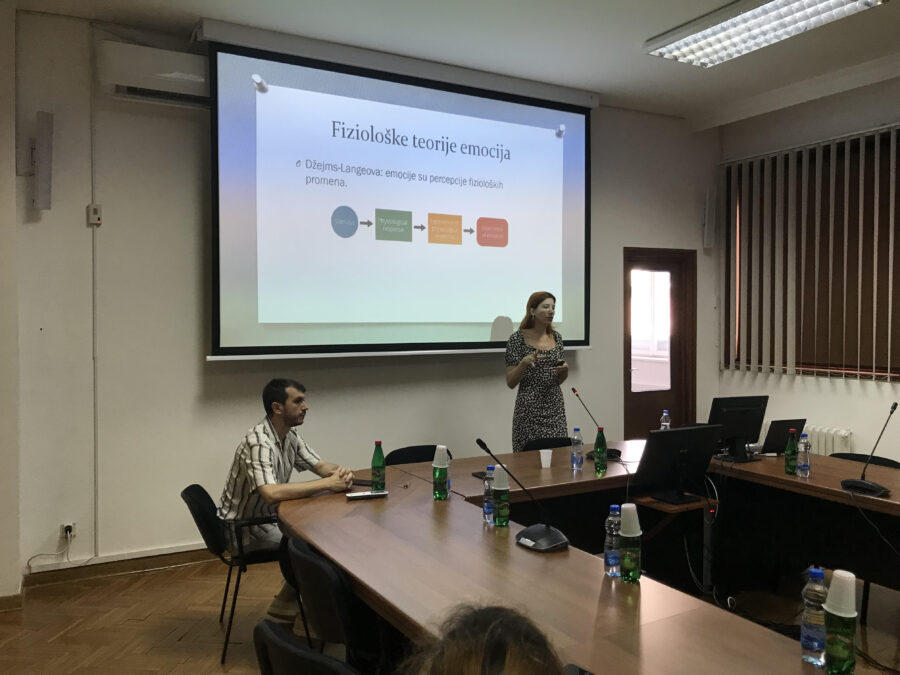Affectivity is a crucial aspect of human consciousness for understanding many psychopathologies, particularly when viewed from an enactivist and ecological perspective, emphasized by doctoral candidate Anastasija Filipović in her lecture titled “In Disarray with the World: Ecological Psychopathology and Affectivity.”
In the lecture held on August 21st in the Grand Hall of the Institute of Social Sciences, a research assistant from the Institute of Philosophy at the Faculty of Philosophy, Anastasija Filipović, attempted to present parts of her doctoral thesis in a comprehensive yet understandable manner and apply these ideas to psychopathology. In her thesis, she explores embodied theories of emotions and affectivity, and in the lecture, she sought to demonstrate how affectivity is crucial for understanding psychopathologies such as schizophrenia and depression.
Her central thesis, which she argues, is that these disorders of affectivity can be best understood from the perspectives of enactivism and ecological psychology. Enactivism highlights that an organism attributes meaning to its environment through its interaction with the world. The ecological perspective helps us understand how each individual creates and changes their ecological niche.
Through these modern philosophical and cognitive-scientific theories of embodied and extended cognition and affectivity, she aimed to show how specific psychopathologies can be characterised as a disconnection from the world, as being “in disarray with the world.” In this context, the doctoral candidate also points out the therapeutic significance of these approaches – changes in a person’s socio-material environment can contribute to their mental healing. Enactivists, in line with the principles of pre-reflective phenomenology of embodiment, also highlight the importance of bodily therapies, dance, and movement, and her lecture concludes with these remarks.
Anastasija Filipović’s lecture is the third in the series of seminars titled “Philosophy and Psychiatry” organised by the Center for Philosophy at the Institute of Social Sciences.

